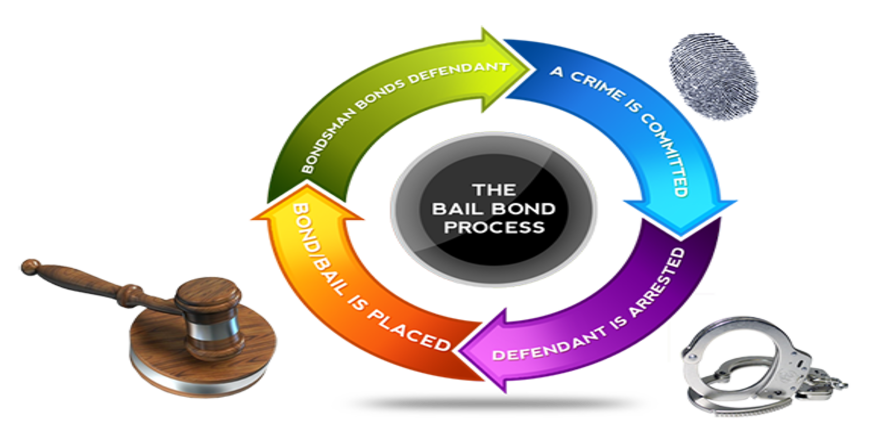
How Bail Bonds Works
The Bail Bonds Procedure
What is a Bail Bond?
When the police arrest a person as a suspect for committing a crime, in most cases, he/she can stay out of jail before trial by posting bail. Bail is a token of ‘conditional release’, provided in the form of cash, property, or a bond to certify that the defendant will comply with the judicial process; the payment is refundable as long as the defendant abides by the provisions. If the defendant fails to show up at hearings or exercises misconduct, the court has the right to keep the bail amount and issue a warrant for arrest.
Bails for common crimes are set at a specific amount in order to accommodate people who want to get out of jail fast. Obtaining a trial date can take anywhere from weeks to a month; without bail, the suspect has to remain in jail for the entire time. Bails for serious crimes are priced higher, however, the eighth amendment of the U.S constitution prohibits excessive amounts.
Procedure for Bail
Following an arrest, the suspect is transferred to the precinct and ‘booked’. The police evaluate the suspect and record his/her personal information; this includes the person’s name, age, date of birth, physical attributes, and description of the alleged crime. Other formalities include a background check, sobriety test, taking fingerprints, and a mug shot. All personal belongings of the suspect are confiscated until release, but he/she is allowed to make a phone call. Suspects with minor charges can post bail immediately, while others involved in violent crimes have to wait one or two days for a bail hearing where a judge shall determine the defendant’s eligibility for bail and the associated costs.
Bail Amount
The judge is responsible for setting the bail; hence, it is safe to say that his/her assessment of the suspect plays a huge role in deciding the amount. The seriousness of the crime is another key factor. For instance, trespassing could be subject to $1,000 bail, whereas a homicide might amount to a $100,000 bail. The defendant can plea for a lesser bail if he/she cannot afford an expensive one. The judge may lower the price in accordance with the defendant’s past criminal record and the probability of violating the law again.
What is a Bond?
A bail bond or surety bond can be used to reimburse any bail amount. It is often utilized when the defendant cannot afford to pay the bail amount. The defendant’s family member or friend may contact a bail agent or bondsman to handle the issue. The bondsman is backed by a special insurance company, which guarantees full bail payment in case the suspect attempts to jump bail. The bondsman typically demands some collateral (property) in exchange for the service and charges a commission.
Personal Recognizance
In some cases, the judge may agree to release the defendant without posting bail. Personal recognizance is applicable to responsible citizens of a society who are expected to respect the orders of the court. Suspects who are set free on personal recognizance are liable for a petty crime and do not possess a prior criminal record. This also includes individuals who have a family, sound job, or strong community ties within a locality; thereby, they are less likely to flee or repeat an offense.
How Can We Help?
"*" indicates required fields
I was with another company for 6 years, but found out that if my case went to retrial or if I was found guilty and wanted to appeal I would be responsible for all the legal cost. Not with AOR as they will continue to cover me and help with the appeal process.
There were also tons of other legal exclusions with my former company, but with AOR has its all covered which I love. They aren't an insurance company they are actual attorneys. I feel more secure with their legal services on my side.
Thank you.






